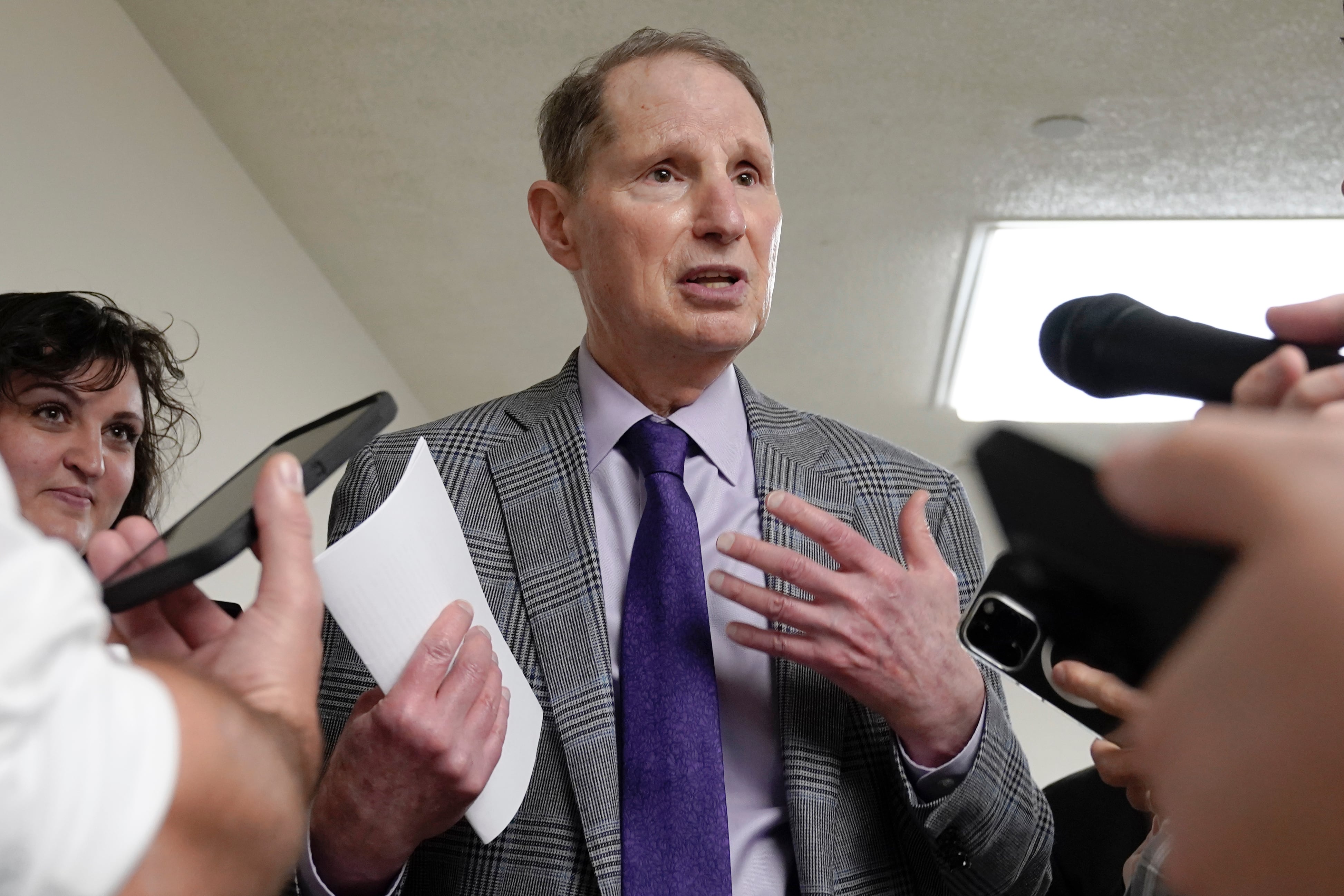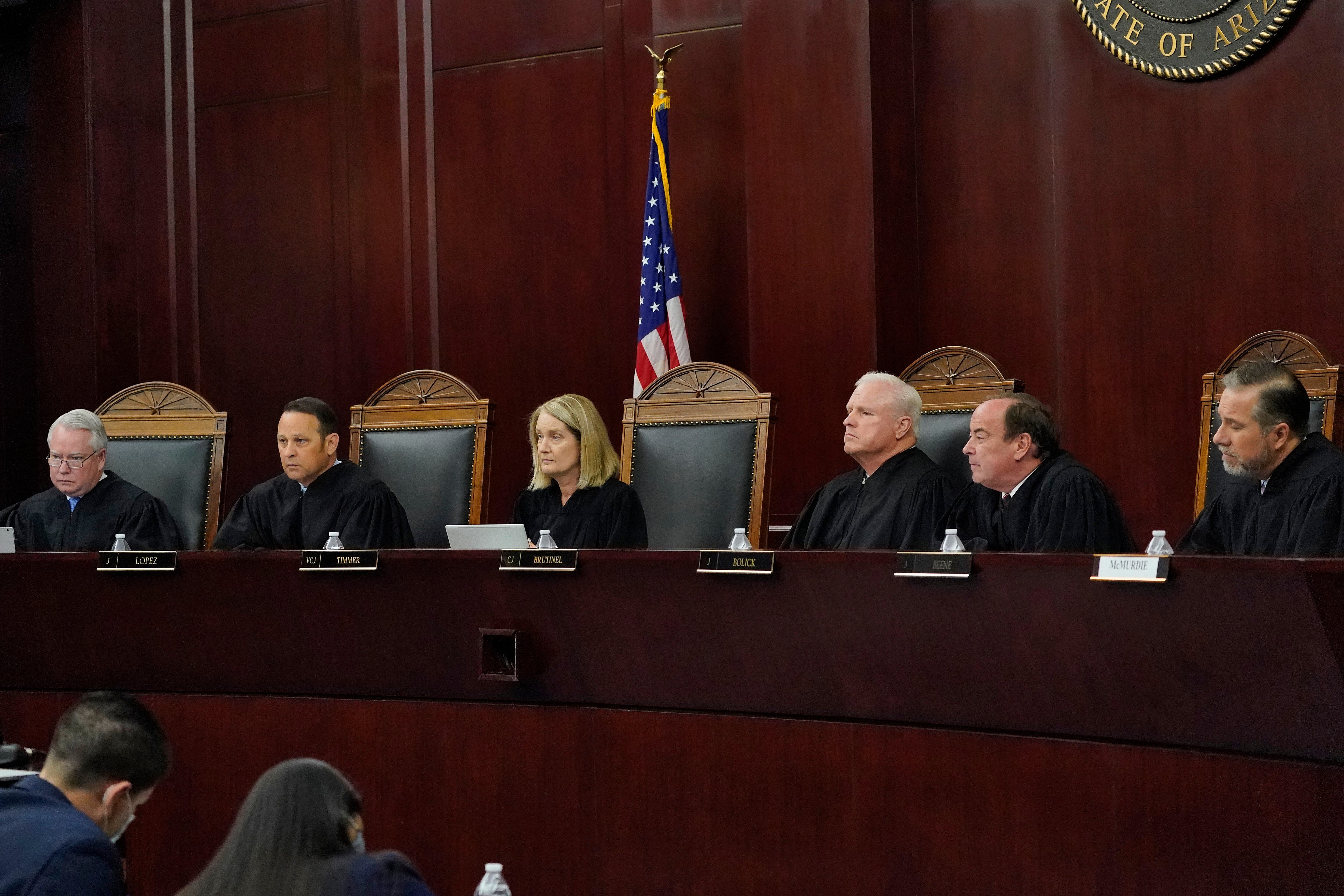By Summer Ballentine
A Missouri judge on Monday temporarily blocked a unique rule that would require adults and children to undergo more than a year of therapy and fulfill several other requirements before they could receive gender-affirming treatments such as puberty blockers, hormones and surgery.
St. Louis County Circuit Judge Ellen Ribaudo issued a temporary restraining order blocking enforcement of Republican Attorney General Andrew Bailey’s emergency rule until May 15 unless she extends it. She also scheduled a May 11 hearing over the lawsuit challenging the rule.
In her ruling, Ribaudo wrote that those suing to block the rule would “be subjected to immediate and irreparable loss, damage or injury if the Attorney General is permitted to enforce the Emergency Rule, and its broad, sweeping provisions were implemented without further fact-finding or evidence.”
She wrote that patients “are at high risk of having their medical care interrupted for an unknown length of time; once the Rule goes into effect, they may lose access to medical care through their current providers until such time as the provider can come into compliance with the Rule’s requirements.”
Bailey's office said it will continue to defend the new emergency rule.
“We remain confident in our position because the Court even acknowledged that it deferred its consideration of the science until a later date,” Bailey’s office said in a statement. “Our six pages of endnotes speak for themselves: these procedures are experimental.”
Gillian Wilcox, deputy director of litigation for the American Civil Liberties Union of Missouri, which filed suit on behalf of transgender Missourians, applauded the ruling.
“Today’s ruling marks a win for transgender Missourians over an unprecedented attempt by the Attorney General to unilaterally legislate and harm their right to self-expression, bodily autonomy, and access to lifesaving health care,” Wilcox said in a statement.
Legal experts and transgender advocates say that if the lawsuit ultimately fails and Bailey’s rule takes effect, it would make Missouri the first state to restrict gender-affirming care for adults and the first to enact such restrictions through emergency rule-making instead of through a new law.
Transgender Missourians argue in the lawsuit that the rule is discriminatory, and that Bailey sidestepped the Republican-led Legislature and exceeded his authority by attempting to regulate gender-affirming health care through the state’s existing consumer-protection law.
Bailey has touted the rule as a way to shield minors from what he describes as experimental medical treatments, though puberty blockers and sex hormones have been prescribed for decades and the rule would also apply to adults.
The attorney general's office has said there are 12,400 Missourians who identify as transgender, the ruling noted. The office estimated that 600 to 700 Missourians would begin intervention in the next year.
The rule, which was initially set to take effect last Thursday, would require people to have experienced an “intense pattern” of documented gender dysphoria for three years and to have received at least 15 hourly sessions with a therapist over at least 18 months before they could receive puberty blockers, hormones, surgery or other treatment.
Before receiving such care, patients would also have to be screened for autism, and any psychiatric symptoms from mental health issues would have to be treated and resolved. Minors, but not adults, also would have to be screened for “social media addiction” before treatments could begin. Some people would be able to maintain their prescriptions while undergoing required assessments.
But the transgender Missourians and health care providers suing to block it say the rule is discriminatory and illegal.
Tony Rothert, an attorney for the ACLU, told Ribaudo at a hearing Wednesday that the regulations would “cause immediate, severe and potentially irreparable harm” for people who could lose access to medications that include puberty blockers and sex hormones.
“We don’t allow attorneys general to legislate, and we don’t allow them to play doctor,” Rothert said.
He and other attorneys said transgender people who can’t get gender-affirming care are at higher risk of suicide.
Assistant Attorney General Joshua Divine argued that Bailey’s order would not ban gender-affirming care, and instead would provide “basic procedural guardrails.” He cited studies showing that a high percentage of children seeking to transition are dealing with mental health issues. He said that rather than transition they should undergo “talk therapy.”
Bailey issued the restrictions following an investigation he launched in February into the Washington University Transgender Center at St. Louis Children’s Hospital. The investigation was prompted by a former employee who alleged that the center was providing children with gender-affirming care without informed consent, a sufficient individualized case review and wraparound mental health services. An internal review by the university found no misconduct and determined that the former employee’s claims were unsubstantiated.
Some transgender people have been trying to stockpile their prescribed hormones or find alternative ways to get the medications on their own, out of fear they could lose access to the gender-affirming treatments many credit as life-saving. Some are considering leaving Missouri if the emergency rule isn’t blocked in court.
“This feels like the end of Kansas City being my home,” said Stacy Cay, an autistic transgender woman. “It feels like it’s being taken away.”
Missouri's Democratic House minority leader, Crystal Quade, said last week that she asked President Joe Biden and the Center for Medicare and Medicaid Services for an executive order that would extend coverage for Missourians who seek gender-affirming care in other states. She also asked the Democratic governors of Kansas and Illinois if their health care systems would accept Missouri patients for such care.
Bailey’s efforts to crack down on gender-affirming health care come as Republicans across the country have proposed hundreds of laws aimed at transgender people. At least 13 states have enacted laws restricting or banning gender-affirming care for minors.
Bailey was appointed by Republican Gov. Mike Parson and took office in January. In a campaign email asking donors for money last week, Bailey said minors are “learning about their genders on TikTok.”
“Think about how frightening that is!” the campaign email said. “And think about how CRAZY it is to expose children to the twisted experiments advocated by extreme transgender activists.”
Brandon Hill, the interim president and CEO of Vivent Health, a health care provider with an LGBTQ+ and HIV focus serving Missouri and other states, questioned Bailey's description of gender-affirming care as “experimental.” Hill said the same hormones used in gender-affirming treatment are used off-label to treat symptoms of menopause and help some cancer survivors.
“If you’re concerned about the drug and its potential effects, you should be concerned about it for everybody,” Hill said.
He said it is “discriminatory if you decide to isolate one group and decide what their treatment looks like, but not others who use the same exact products.”
Meanwhile, Republican state lawmakers are fighting over competing Missouri House and Senate bills that would ban all gender-affirming care for minors. The chambers are split over which version they want to send to Parson, who is threatening to force the Legislature to keep working if nothing is done on the issue by the May 12 end of the legislative session.
___
This story was updated to correct that the judge blocked the rule from taking effect until May 15 unless she further extends her order, not until the lawsuit challenging the rule is resolved.
___
Associated Press writer Jim Salter in O'Fallon, Missouri, contributed to this report.













